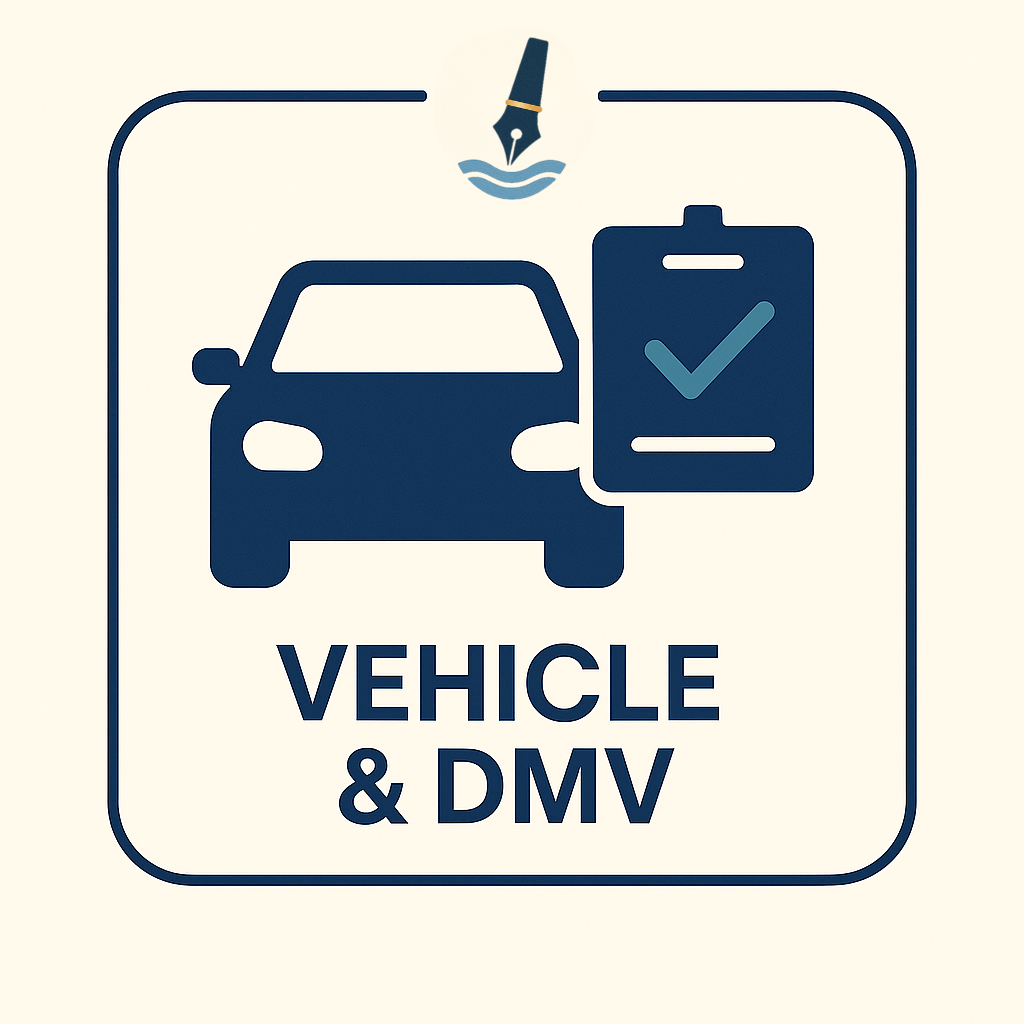Nevada law NRS 482.5165 bans vehicle repossession from federal/state/tribal workers during government shutdowns + 30 days. Violations = misdemeanor + damages.
November 12, 2025
Repo & Recovery

Nevada Revised Statute 482.5165, effective January 1, 2024, prohibits vehicle repossession from federal workers, state workers, tribal workers, and their household members during any government shutdown plus an additional 30 days following the shutdown's conclusion[web:12][web:6]. The statute creates absolute protection regardless of loan default status, delinquency duration, or contractual repossession rights—once a qualifying worker provides proof of employment status during a covered shutdown period, all repossession activity must cease immediately[web:12][web:173].
Violations of Nevada's repo moratorium constitute a misdemeanor criminal offense and expose lenders, repossession agents, and forwarding agents to civil liability for actual damages, reasonable attorney's fees, and court costs incurred by the injured borrower[web:178][web:12]. Nevada auto lenders, repo agents, and recovery companies operating throughout Nellis Air Force Base, Laughlin (near federal facilities), and Carson City (state government center) must implement verification procedures preventing unlawful repossessions that trigger criminal and civil consequences.
The law applies not only to traditional government shutdowns but also to furloughs affecting federal contractors, tribal government workers, and Nevada state employees facing budget-related work stoppages. With approximately 32,000 federal civilian employees in Nevada (Department of Defense, Veterans Affairs, Interior, Homeland Security) plus thousands of federal contractors and tribal workers, repossession companies face significant operational complexity determining who qualifies for protection and when the moratorium period begins and ends[web:175][web:18].
Nevada's repossession moratorium statute provides protection to five categories of individuals, each defined through cross-references to NRS Chapter 40 (mortgage foreclosure protections)[web:12][web:178]. Understanding these definitions prevents inadvertent violations when processing repossession orders for vehicles registered to addresses in Pahrump, Boulder City, or other Nevada communities with significant government worker populations.
Protected Categories (NRS 482.5165):
The "household member" provision creates broad protection extending beyond the actual government employee—a vehicle titled solely in a non-working spouse's name remains protected if that spouse resides with a federal worker experiencing shutdown[web:12]. Repossession agents cannot distinguish between worker-owned vehicles and household member vehicles without risking violations. This significantly expands the universe of protected vehicles beyond what borrower employment records alone would indicate.
Protection triggers automatically when a "shutdown" begins and extends through a 30-day grace period following the shutdown's resolution. Nevada law defines "shutdown" through NRS 40.0035's cross-reference to federal and state appropriations failures, but repo agents and lenders must understand when protection actually commences and terminates to avoid violations[web:12][web:173].
Protection Timeline:
Example Timeline Calculation:
Lenders cannot circumvent the grace period by arguing the borrower received back-pay immediately upon shutdown resolution. The 30-day extension provides time for workers to stabilize finances, catch up on missed payments, and negotiate loan modifications—regardless of when paychecks actually resume[web:175][web:177].
NRS 482.5165 requires the borrower (or household member) to "provide proof" of protected worker status before the statute's protections apply[web:12]. However, the statute does not specify what constitutes adequate proof, when proof must be provided, or procedures for validating submitted documentation. This ambiguity creates practical challenges for repossession companies serving Indian Springs (near Creech Air Force Base) and other military/federal installations.
Acceptable Forms of Employment Proof:
When Must Proof Be Provided: The statute does not require advance notice before shutdown. Borrower can provide proof at any point during the protected period, including when repossession agent arrives to take vehicle. Repo agent confronted with employment proof must immediately cease repossession activity—taking the vehicle after viewing valid proof constitutes knowing violation triggering criminal penalties[web:12][web:177].
Best practice: Repo companies should implement pre-repo verification calls requesting employment status disclosure and documenting borrower responses. If borrower claims protected status, request proof submission to lender before dispatching agent. This prevents wasted field trips and reduces breach-of-peace incidents when agents confront protected borrowers asserting statutory rights.
NRS 482.5165 establishes criminal liability for "any person who knowingly repossesses a vehicle" in violation of the statute's prohibitions[web:178][web:12]. This criminal exposure distinguishes Nevada's repo moratorium from civil-only protections in most other states and creates unique enforcement risks for lenders, forwarding companies, and repo agents throughout Nevada's repossession industry.
Criminal Violations (Misdemeanor):
Criminal prosecution decisions rest with county district attorneys in jurisdictions where repossessions occur. Clark County DA (covering Las Vegas Strip, Summerlin, and surrounding areas) has not publicized prosecution policies regarding NRS 482.5165 violations, but misdemeanor charges remain available for particularly egregious cases—such as repos occurring after borrower provides military ID or federal employment badge to repo agent.
Repossession companies cannot delegate criminal liability through independent contractor relationships. Forwarding company directing unlawful repo faces equal criminal exposure as the agent physically taking the vehicle. Lenders authorizing repos during protected periods after receiving employment notice similarly face potential charges. This shared liability structure requires coordination across all parties in the repo chain confirming no shutdown protection exists before proceeding.
Beyond criminal penalties, violators face civil liability to the injured borrower for actual damages, reasonable attorney's fees, and court costs[web:12][web:177]. Nevada's fee-shifting provision creates asymmetric risk—borrowers incur no financial risk pursuing claims (contingency representation available), while repo companies face potentially unlimited fee awards even for technical violations involving minimal actual damages.
Recoverable Damages Categories:
Typical Damage Scenarios:
Attorney's fees often exceed actual damages, making even "small" violations expensive. Nevada courts award fees based on hourly rates ($300-$500/hour typical for plaintiffs' consumer attorneys) multiplied by time spent, not capped by damage amounts. A $500 actual damages case can generate $15,000 in fee awards if plaintiff's counsel extensively litigates the matter through trial.
Nevada repossession companies must implement systematic verification procedures preventing inadvertent violations of NRS 482.5165. These controls should activate automatically whenever: (1) any federal/state/tribal government shutdown occurs, (2) borrower is located near federal/military installations, or (3) borrower claims protected status during contact attempts[web:173][web:6].
Recommended Verification Protocols:
1. Shutdown Monitoring System
Subscribe to federal/state government shutdown alerts (GPO Federal Register, Nevada governor's office announcements, tribal government notices). Implement automatic hold on all pending repo assignments when shutdown declared. Create dated documentation of shutdown start/end dates establishing protection timeline for audit defense.
2. Borrower Contact and Disclosure
Prior to dispatching agent, attempt phone contact with borrower requesting employment status disclosure. Ask specifically: "Are you currently employed by the federal government, Nevada state government, a Native American tribe, or a federal contractor?" Document response and date/time of inquiry. Refusal to answer or non-response does not permit proceeding if shutdown is active—err on side of caution.
3. High-Risk Address Screening
Flag borrower addresses within 5 miles of federal installations (Nellis AFB, Creech AFB, Hawthorne Army Depot, Lake Mead National Recreation Area facilities, federal courthouses, VA hospitals). Require enhanced verification before proceeding with repos near these locations. Cross-reference borrower surnames against federal employee directories when publicly available.
4. Field Agent Training and Documentation
Lake Mead Mobile Notary provides professional legal notice delivery services for Nevada repossession companies requiring documented proof of employment status verification before proceeding with recovery. Mobile agents can conduct in-person interviews requesting protected status disclosure and photograph submitted proof documents, creating admissible evidence of compliance efforts. Same-day service available throughout Sparks and Fernley. Call (702) 748-7444 for repo compliance documentation services.
5. 30-Day Post-Shutdown Calendar Tracking
Create calendar alerts marking Day 31 post-shutdown (first permissible repo date) for all held assignments. Do not rely on general shutdown end announcements—count exact 30 calendar days from official end date. If shutdown end date is disputed or unclear, wait until unambiguous official declaration before counting grace period.
Repo agents physically at vehicle location when borrower suddenly claims federal/state/tribal worker status face immediate decision: proceed with repo, or cease activity and retreat. Nevada law does not require proof presentation before repo attempt—borrower can assert protection orally at scene, forcing agent to abandon recovery or risk violation[web:12][web:177].
Field Response Protocol When Protection Claimed:
False protection claims: Borrowers sometimes falsely claim protected status to delay repo. However, agents cannot distinguish truthful from false claims at scene without thorough verification. Proceeding despite any protection claim creates unacceptable violation risk. Forwarding company/lender must verify status through employment records, borrower contact, or document submission before authorizing second repo attempt.
Nevada military personnel (Nellis AFB, Creech AFB, NAS Fallon) may enjoy dual protection under both NRS 482.5165 (Nevada repo moratorium) and federal Servicemembers Civil Relief Act (SCRA)[web:18]. SCRA provides separate, independent protections for active-duty military members that apply regardless of government shutdown status—creating year-round protection for qualifying servicemembers.
SCRA Repossession Protections:
Repo companies must separately verify SCRA status for all Nevada borrowers located near military installations, regardless of shutdown status. Federal court orders are required before repossessing SCRA-protected vehicles, creating procedural barrier that Nevada's shutdown moratorium does not require (NRS 482.5165 operates automatically without court involvement).
Nevada hosts 27 federally-recognized Native American tribes and colonies controlling sovereign tribal lands throughout the state. Vehicles located on tribal land face dual restrictions: (1) tribal law governing on-reservation repossessions, and (2) NRS 482.5165 protecting tribal worker vehicles during shutdowns[web:18]. These overlapping jurisdictions create complex scenarios for repos involving tribal members employed by tribal governments.
Tribal Repossession Considerations:
Best practice: Consult tribal legal departments before attempting any repo from tribal land, regardless of shutdown status. Violating tribal law creates separate civil liability and potential tribal court jurisdiction beyond Nevada state court remedies.
Nevada Senator Catherine Cortez Masto and 18 co-sponsors introduced the *Federal Employee Civil Relief Act* in October 2025, proposing nationwide protections mirroring Nevada's NRS 482.5165 framework[web:175]. If enacted, federal law would supersede state protections and create uniform repo moratorium standards across all 50 states during government shutdowns.
Proposed Federal Protections:
National repo industry organizations oppose federal legislation citing operational complexity and reduced recovery rates. However, increasing frequency of government shutdowns (4 shutdowns 2018-2025) and expansion of federal contractor workforce make uniform national protections politically likely. Nevada repo companies already complying with NRS 482.5165 will face minimal operational changes if federal law passes.
Nevada repossession companies can implement systematic compliance procedures minimizing NRS 482.5165 violation risk while maintaining operational efficiency during non-shutdown periods. These practices benefit both repo companies (reduced legal exposure) and lenders (faster post-shutdown recovery resumption).
Operational Recommendations:
Book legal notice delivery and repo compliance documentation services: https://lakemeadmobilenotary.com/book or call/text (702) 748-7444 for same-day Nevada repossession moratorium verification assistance.
This content is for informational purposes only and does not constitute legal advice. Repossession companies and lenders should consult legal counsel for compliance guidance specific to their circumstances.

